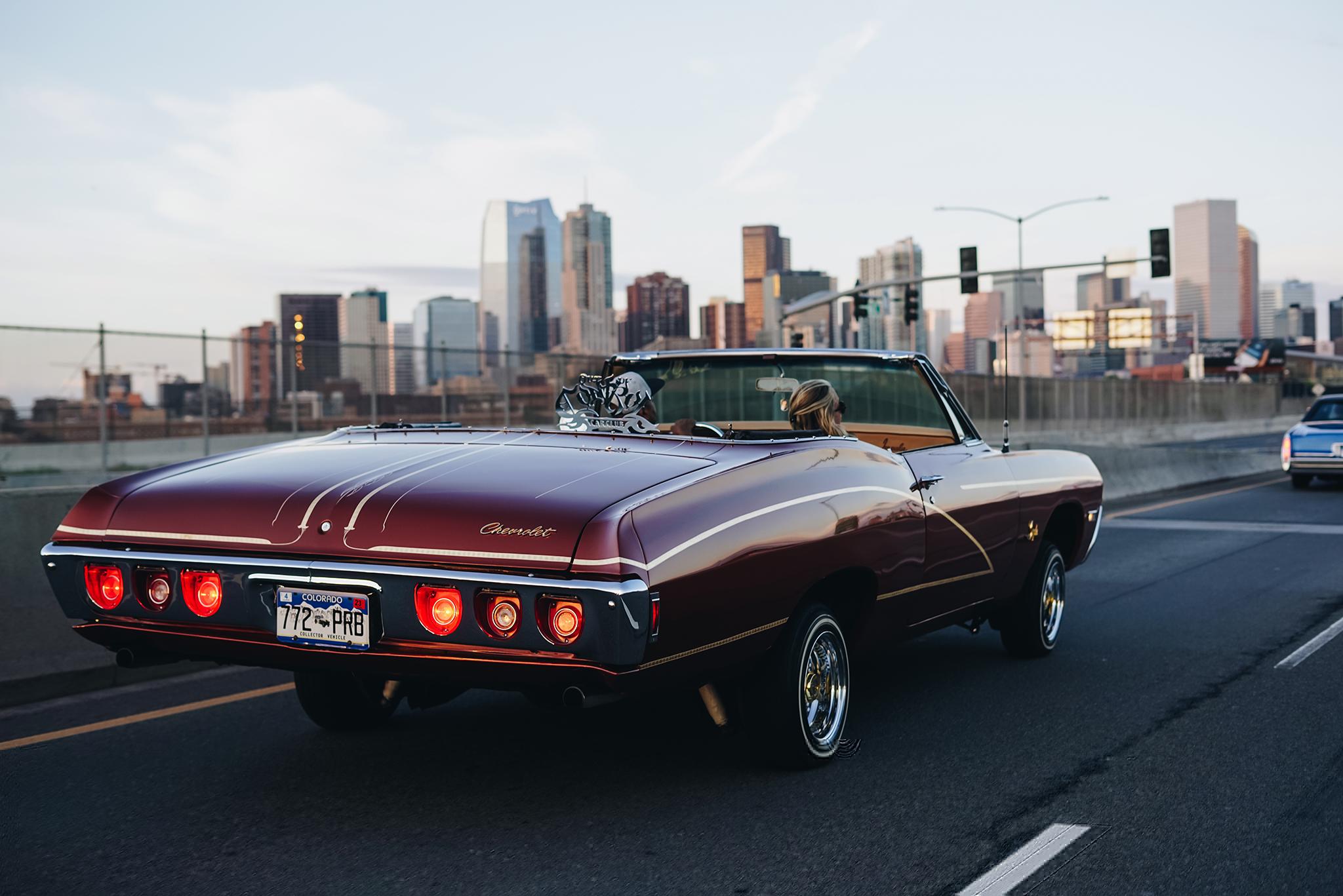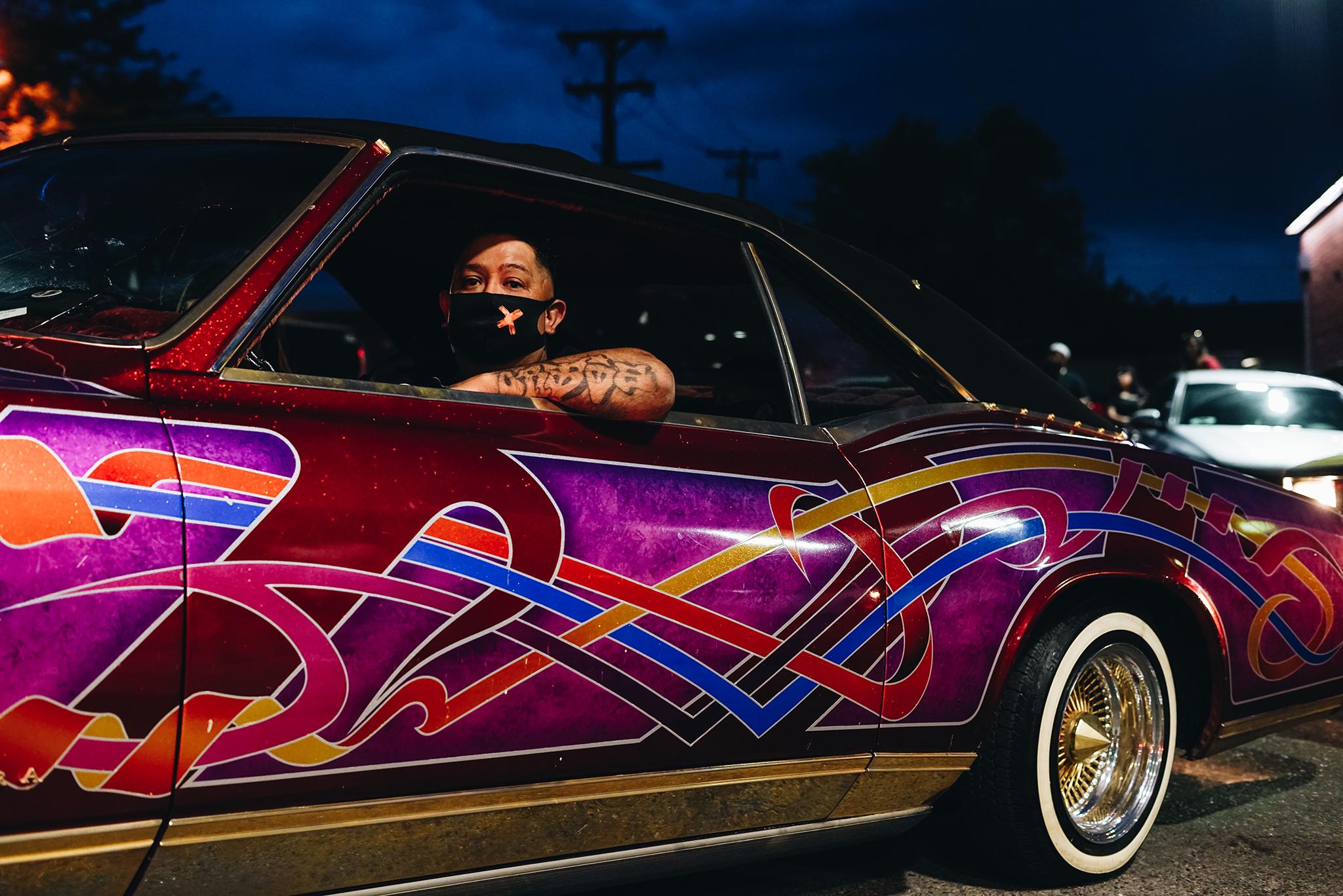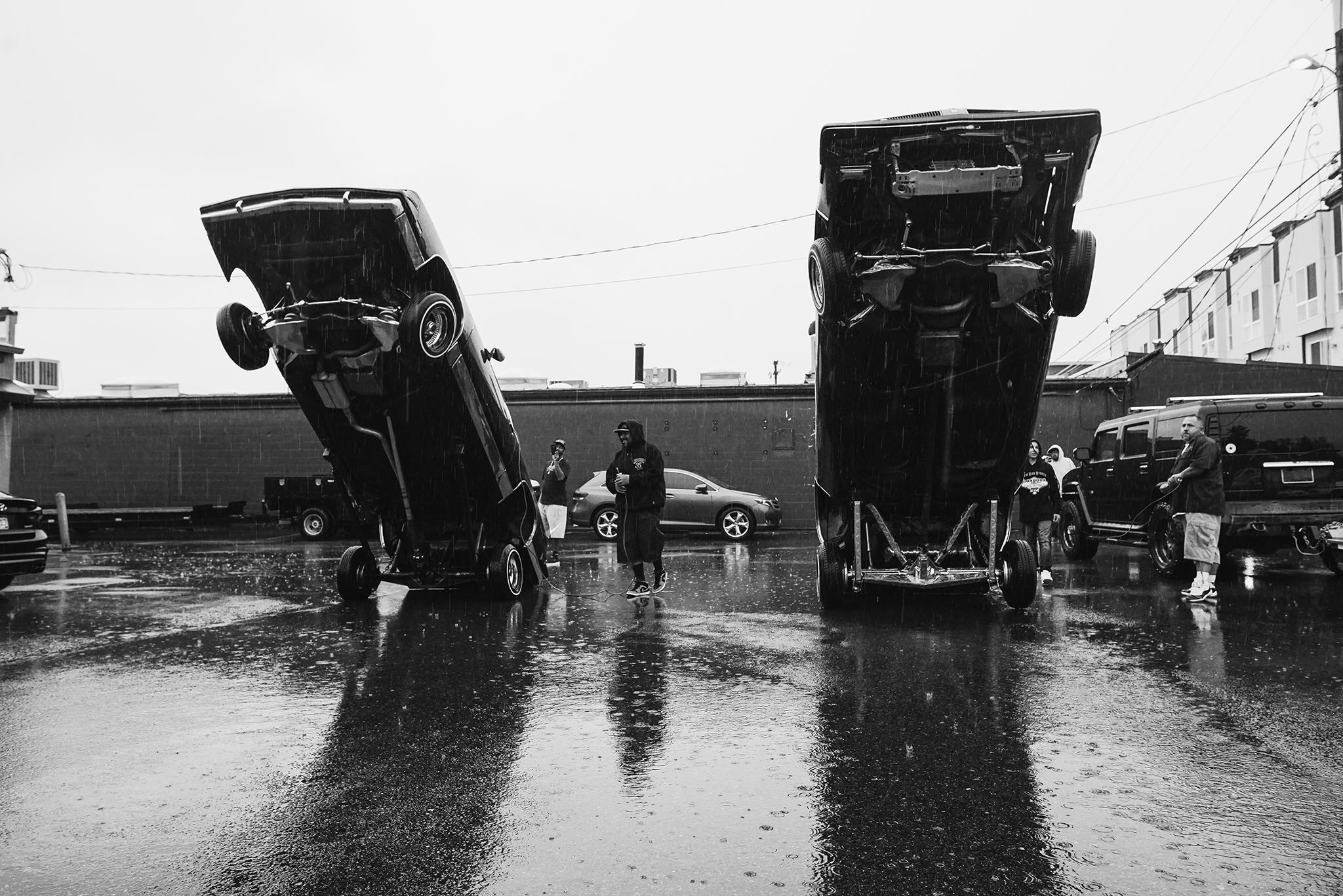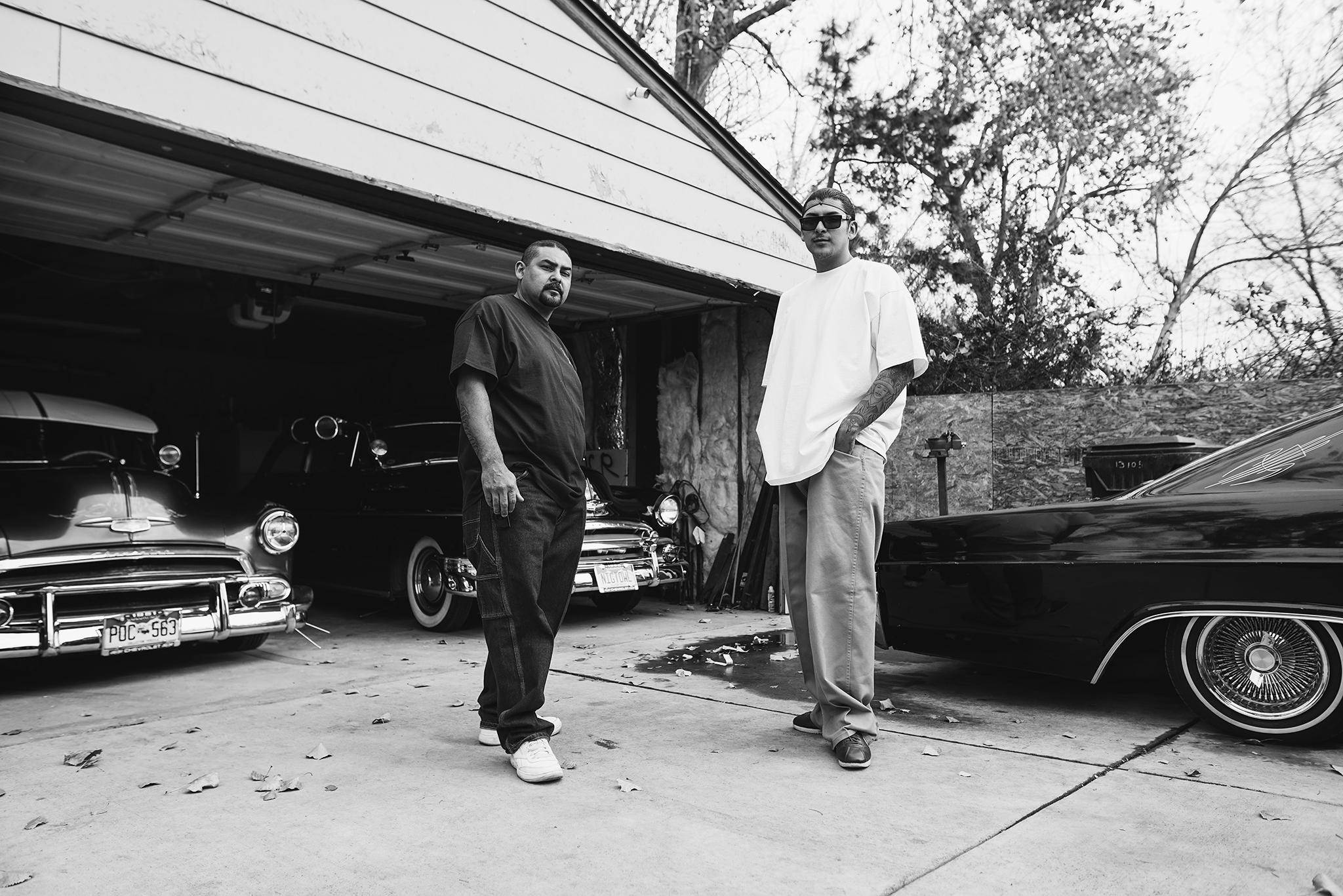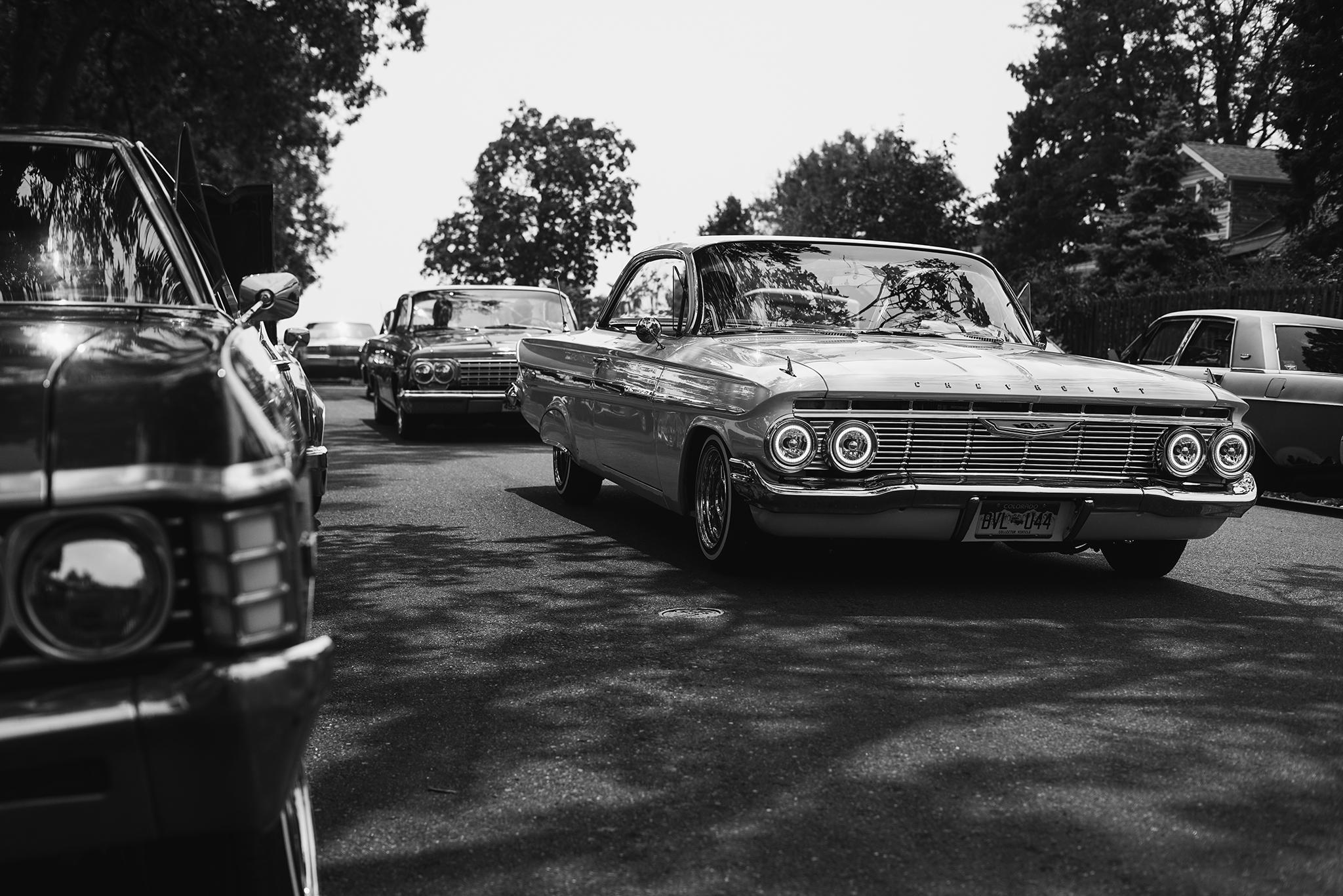Armando Geneyro grew up in California and relocated to Denver about a decade ago after a stint in the military. He was introduced to Denver's long-standing lowrider and cruising culture traditions about six years ago during a visit to the city's annual Cinco de Mayo celebration. Since then, he said, he's been "addicted" to documenting the scene.
In addition to photographing cruising culture, Geneyro has also helped organize city-supported cruises like the one held last Sunday. Last year, Denver City Council recognized Federal Boulevard cruising after decades of police and city officials vilifying the tradition.
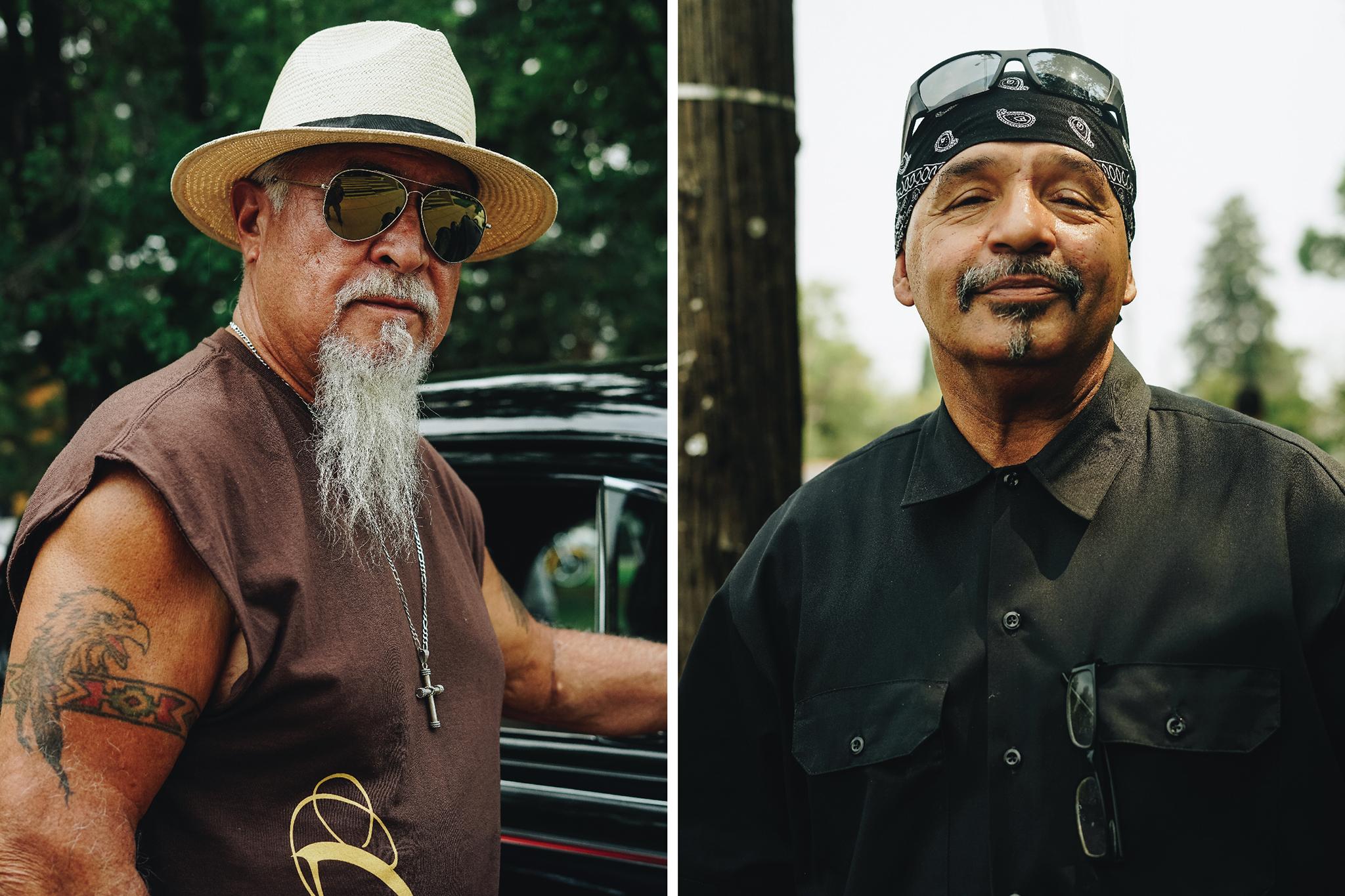
Armando Geneyro for Denverite
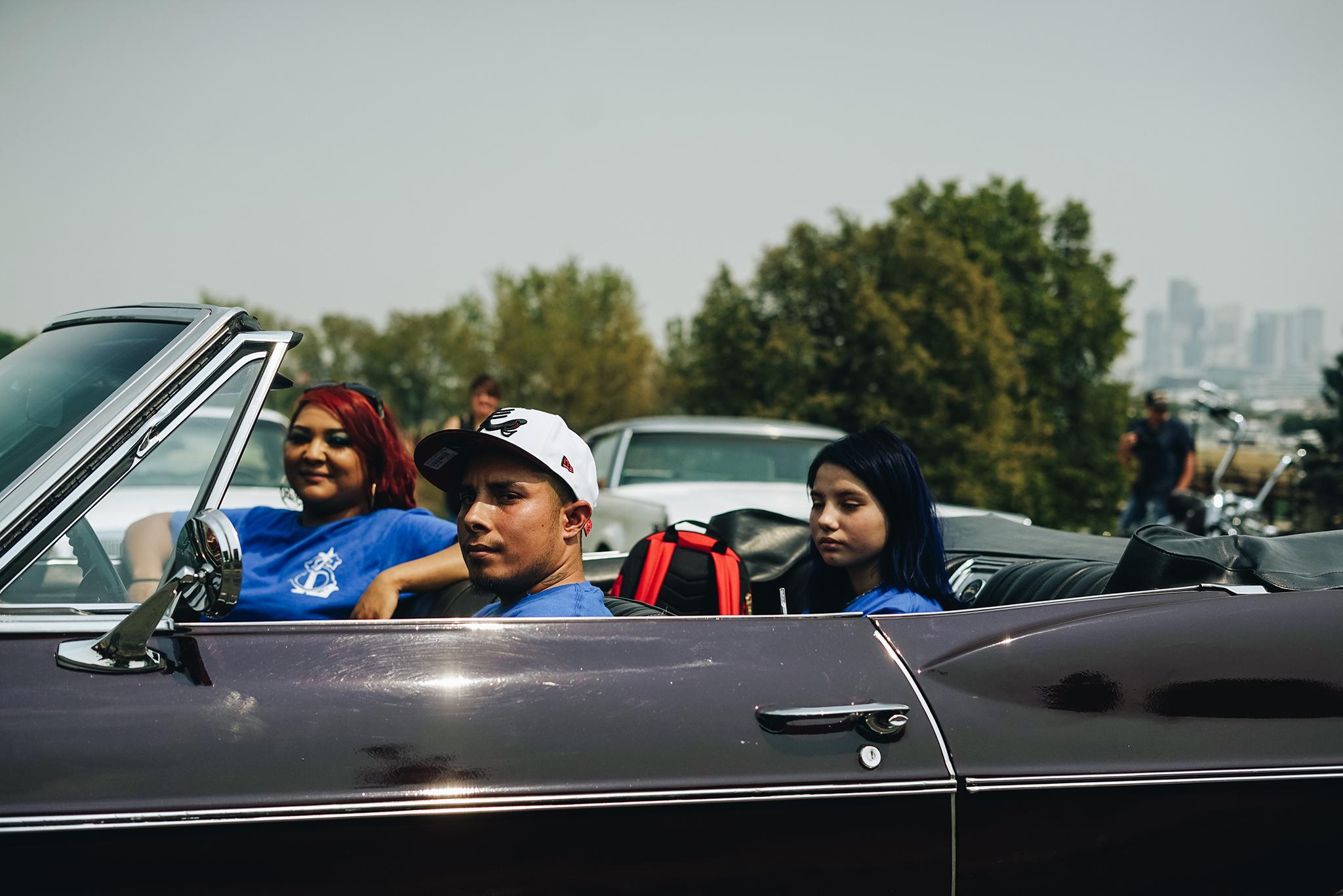
He asked to open this Q&A with a statement:
AG: I've done these kinds of interviews before, and over time I've wanted to shy away. I even thought about not doing this interview because I don't want to make it about me. What's most important is these families that are there, carrying on these traditions and passing them down. They're the ones that have grown up here. I've been lucky to be embraced by a lot of these families. I'm just fortunate to be a part of this scene in this culture here in Denver. But the people that have been lowriding since the '60s and '70s and '80s and '90s, those folks take photos too. They document their families in ways that I could never. I'm lucky I have this platform that I'm able to use, and I can help push to the forefront that these families are the ones that are the real culture. ... I don't want to make it about me. I want to make it about the people here in Denver that I've been fortunate enough to know.
KB: How was the cruise on Sunday?
AG: It was great. It was beautiful. I don't know if you heard, there was a threat. ... There was just a threat of violence from a certain person that was claiming to be a part of a gang in Denver. We had to take it seriously, obviously. That was part of why some people didn't show up. Tensions were kind of high. That energy shifted early in the day when we found out about it. It was like an hour or two before the cruise was supposed to go down. And so, when we got to Barnum park, the energy was kind of off. People were looking over their shoulders. I know I was. But I think as the day progressed, we saw that there wasn't a lot to worry about. ... I found myself wondering about this cruise and how this cruise may be passed down 48 years from now, when we hit our 50th anniversary. I'm hoping that the future leaders, the future Latino leaders and Chicano leaders of the city, hopefully will carry that tradition on and it'll be something that people can come to from around the country. ... It's just a celebration of Denver tradition and Denver culture and, hopefully, it'll be something future generations can turn the back on and be proud of what we did for the culture.
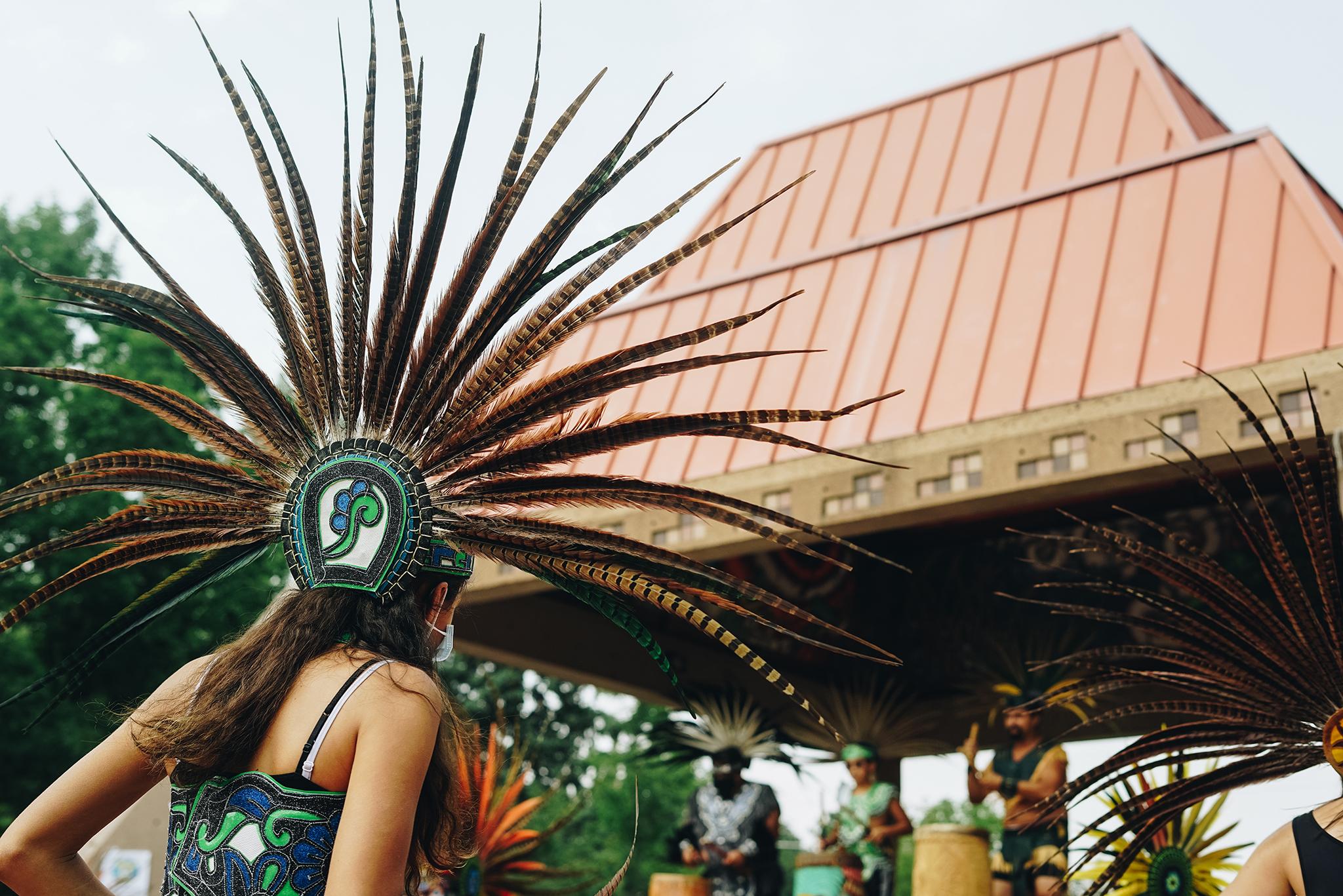
Armando Geneyro for Denverite
KB: Because you've spent so much time documenting this world, how does that level of intimacy affect the way that you work? One thing you mentioned is that you focus on the folks who are inside the cars and, to me looking at your pictures, it seems obvious that a lot of these people aren't strangers to you. I just wonder if you feel like that changes something?
AG: When I try to document these folks, the people specifically, I try to show them in a light that's empowering. I think it's important. With everything that's been going on recently on Federal Boulevard, a lot of the violence, there's this stigma and these misconceptions about lowriding culture and the people that are involved with lowriding. A lot of people that don't know any better might look at some of these folks like gangbangers or troublemakers or whatever this current [presidential] administration would have you believe about Chicanos and immigrants that are parts of these subcultures. I try to show them in a light that's empowering, not only to the people that I'm taking photos of but to the people that are the audience of these photos. I guess that's one way that it affects how I shoot. I try not to celebrate these certain parts that are problematic and in stereotypes. But I definitely try to make them look like they're ancient warriors of these Aztec tribes and these Incan tribes. I try to present them as empowered figures and family men, family women and people that are carriers of traditions, strong and beautiful traditions.
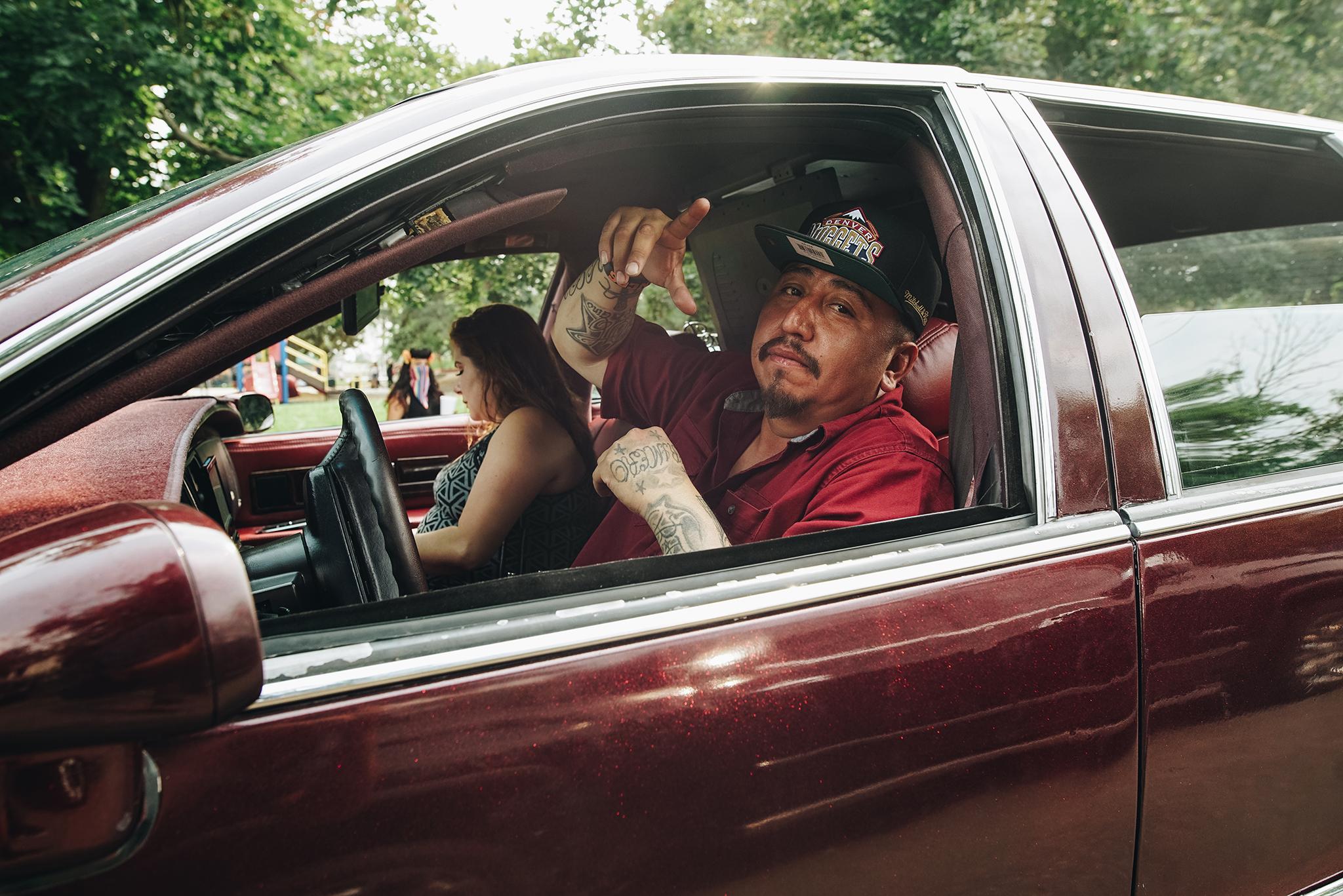
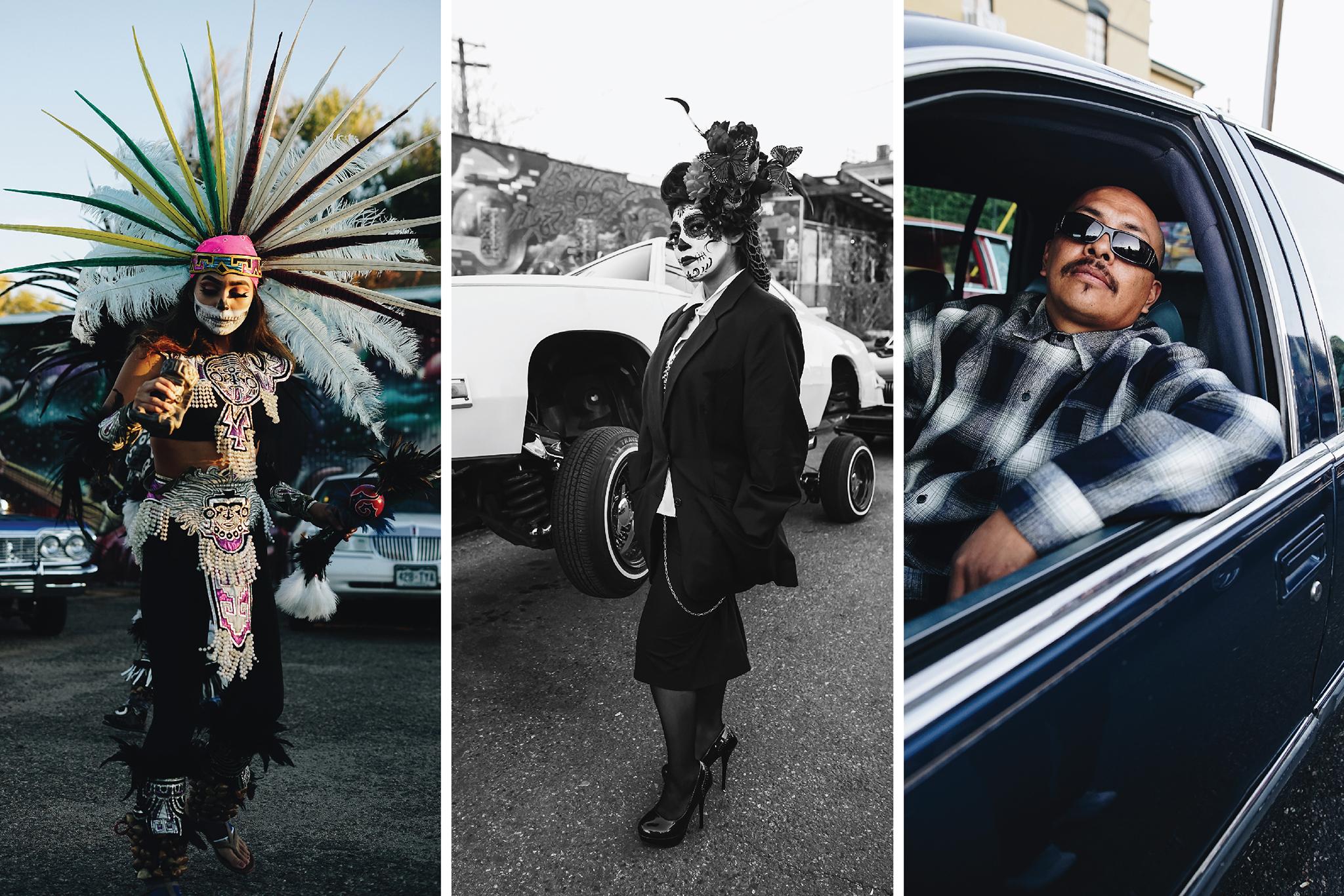
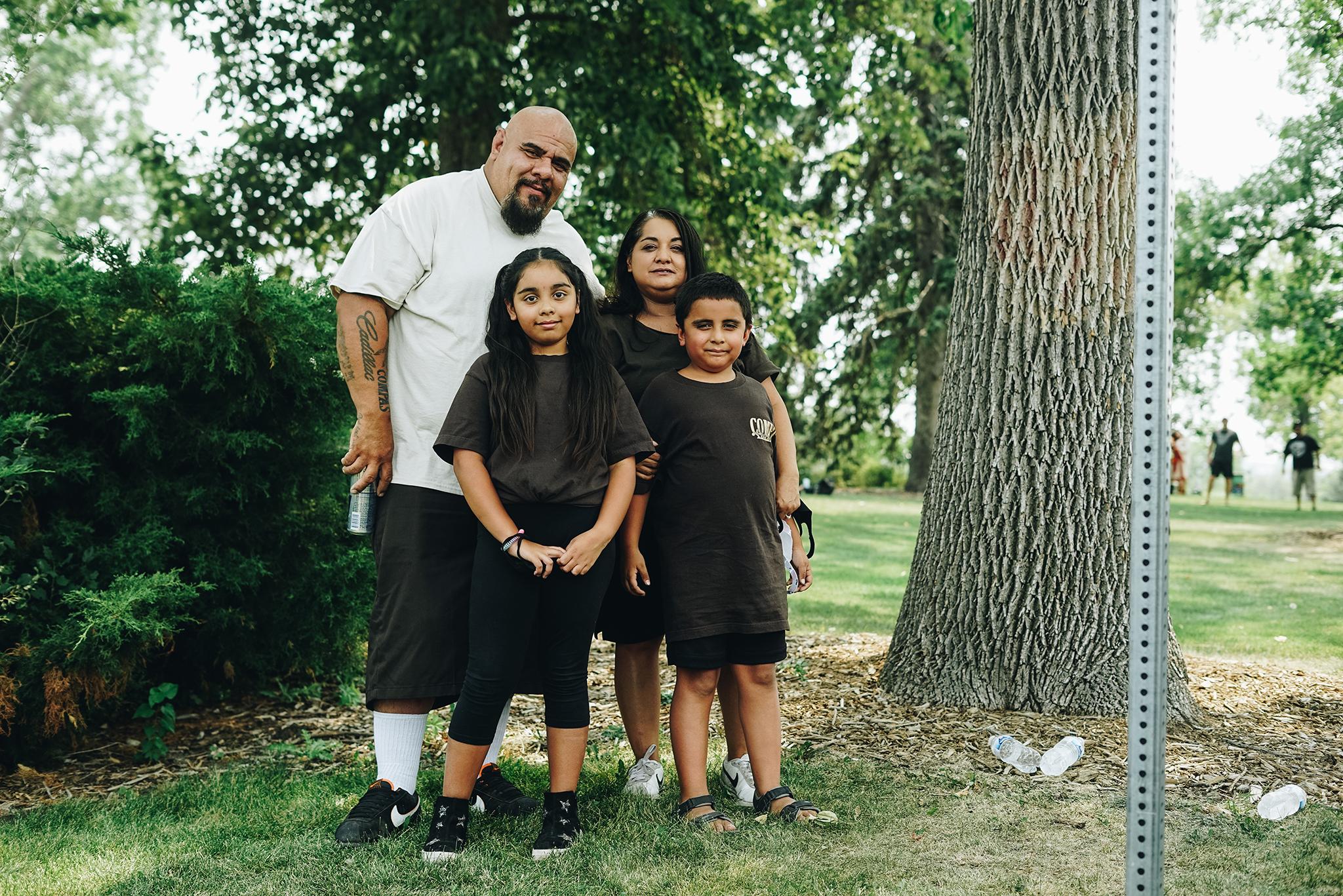
KB: I'm glad you brought up showing families, because its an obvious through-line in your work. I'm looking at this picture of a little girl in a dress from Sunday at La Raza, and I wanted to ask you about this idea of representation. I think you touched on it by talking about how people are portrayed. Do you feel like there are enough positive images of Latinos in our society or in Denver right now?
AG: I think there are. I think there's a bunch of positive images. But I just don't think they're really pushed to the forefront. I think the people who already have these certain biases about Latinos and Chicanos are kind of set in their ways. They view us, and them, as "other" and not a part of the American fabric. So I think there's people that are from here, born and raised, you know, for 60, 70, 80 years that are strong figures in the movement. And I can only hope, one day, to be considered a part of that lineage. I just think it's all about not being pushed to the forefront. There's a new exhibit at the History Colorado museum celebrating Latino culture in Denver. It's something that's been a long time coming for an institution like History Colorado, and they're finally starting to celebrate those artists and those social workers and activists and organizers that have been doing it for decades. It's great that they're finally starting to get the attention, but they've been around for a long time and it shouldn't diminish in any way the work that they've done for so long.
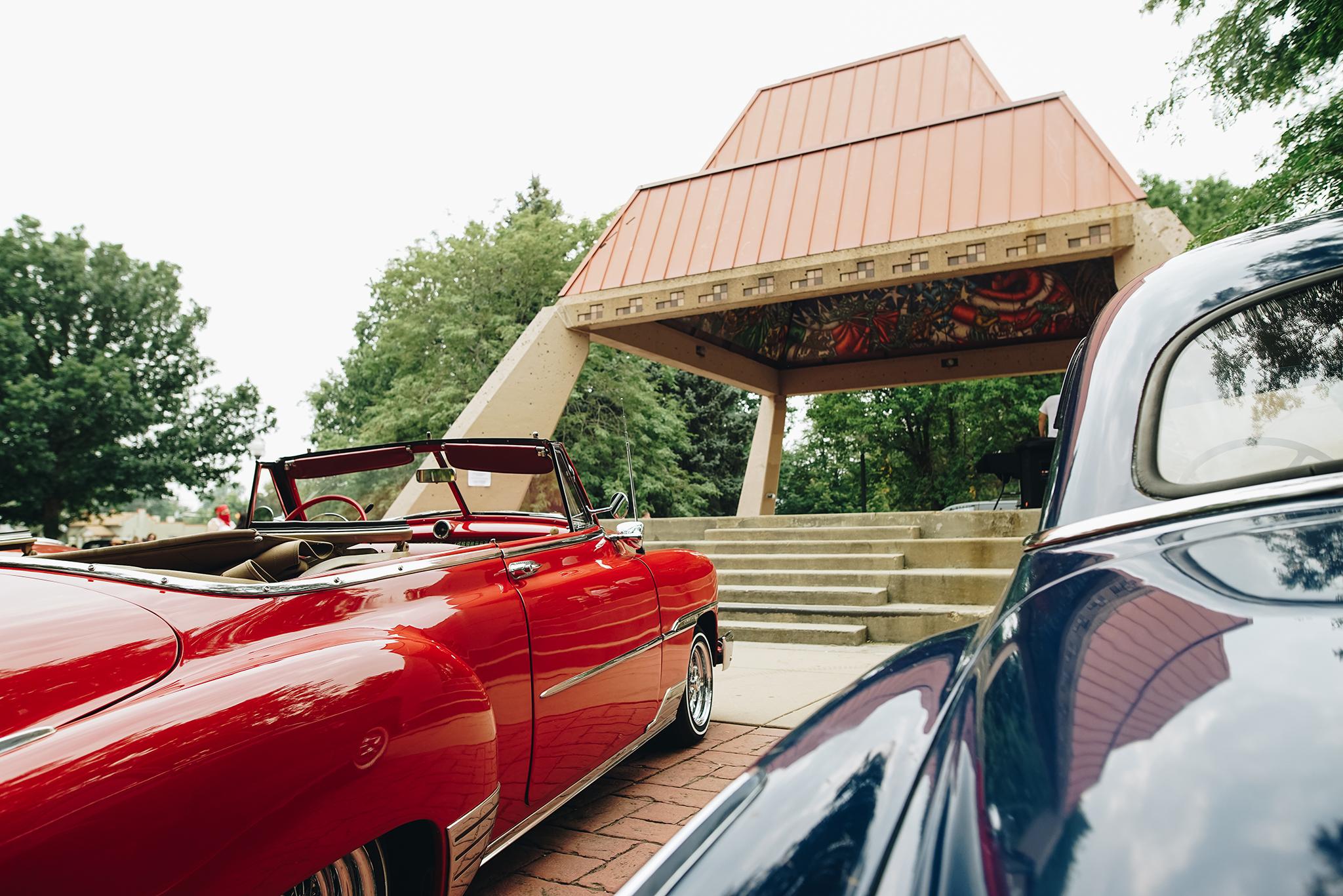
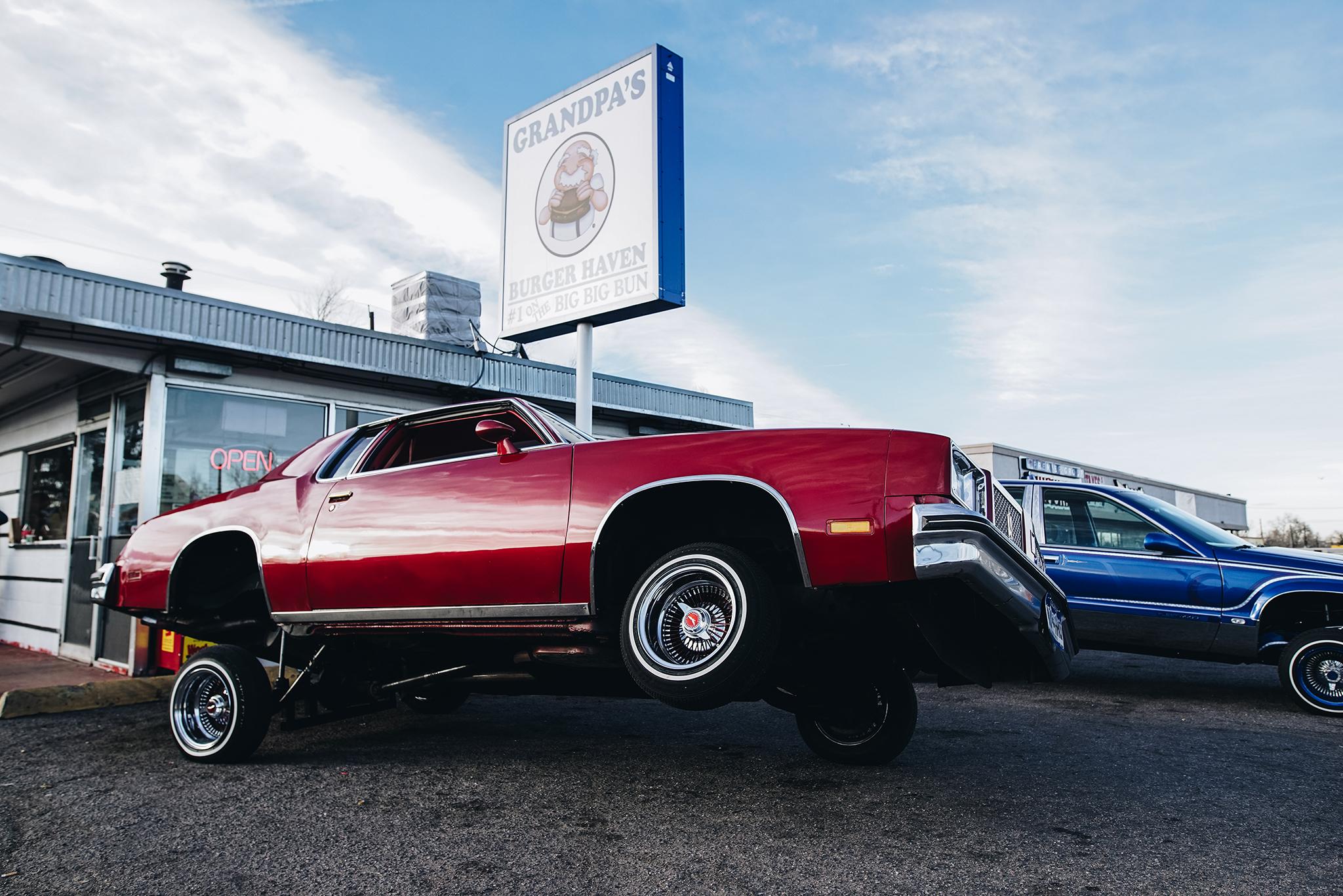
KB: Something else I noticed in these photos is a really strong sense of place. You're taking a picture of someone driving a car, but it's often framed by buildings in neighborhoods that are really recognizable. There was one of Grandpa's Burger Haven. There was one, it looks like under the I-70 viaduct a couple years ago, and definitely some stuff that looks like Sunnyside. Are those conscious choices, that you're trying to place these figures in the landscape of the city?
AG: Definitely. With so much change happening in Denver, especially over the last decade or so and maybe even longer with the gentrification, we're losing a lot of those monuments and those staples that have been in Denver for a long time. I mean that one of I-70, that was actually during a photo workshop I did with some students, and I made the conscious choice of: let's try to get these clubs out here and take some photos of some really dope cars underneath I-70, because this is going to be going away soon. ... Stuff like Grandpa's Burger Haven, who knows if that's going to be around in the next ten years? I would hope so. I would think so. But it's important to document the fact that these lowriders and these families, this is part of their tradition. Sundays cruising and posting up at Grandpa's and playing music and eating out and chilling. It's definitely a conscious decision. It's part of a larger series of photos that I have where it's just placing these old cars and these beautiful pieces of art - really is what they are - in these places around Denver that may or may not exist anymore, or may not exist in the next decade or so.
KB: It's really about preserving the moment in time so if the city continues to change, at least we won't forget the history?
AG: Definitely. And I even have a lot of photos of these older cars in front of these newer places in Denver that are part of the gentrification. It just shows that juxtaposition between that old and the new.
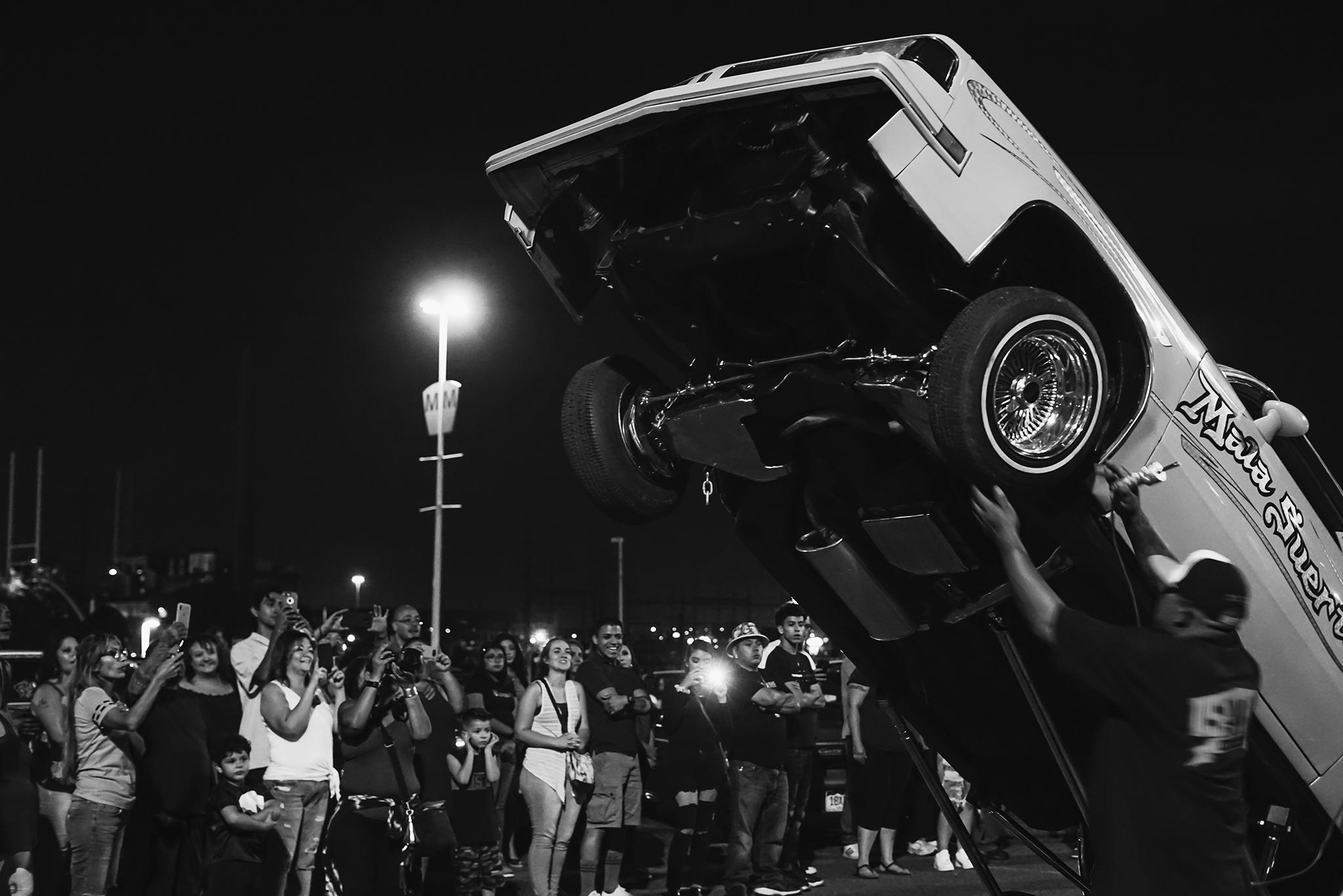
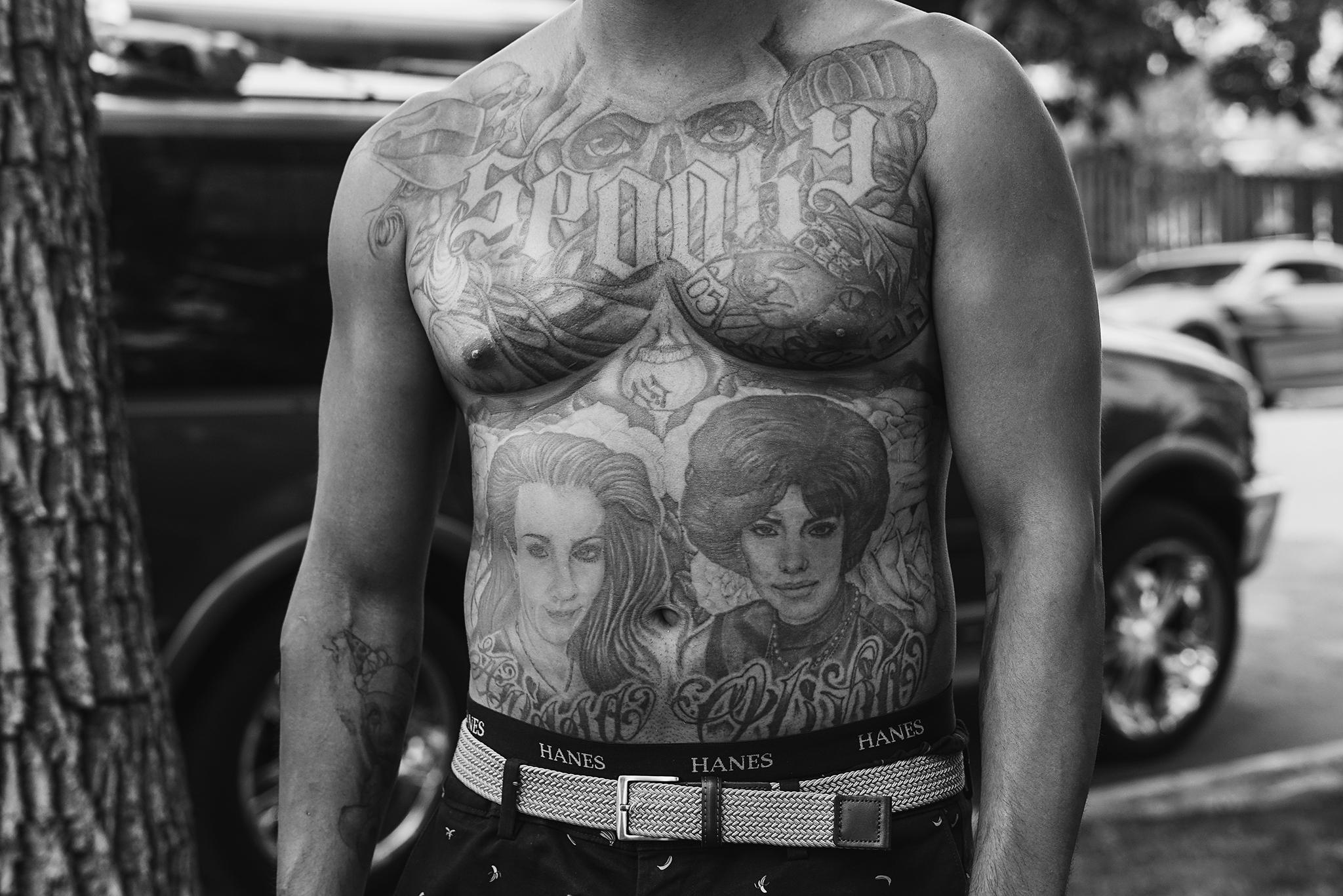
KB: I wanted to ask about the news about Federal lately. You mentioned the violence. ... You talked about it from the perspective of an outsider, how they might perceive things, but how is this being discussed internally for folks that spend a lot of time driving on Federal?
AG: People are disappointed. People are scared. A lot of the lowrider clubs are working to find a new spot to cruise on Sunday nights because when people go out to Grandpa's Burgers on Sunday night, they don't want to have their kids in danger. There's been talks about moving it to different spots. ... Because it's so family-oriented, they're sad to see it. A lot of us saw that it's not the low riders and the families themselves that are part of the violence. It's a different faction. There's a lot of gang activity that's kind of on the rise right now at Denver. I think with everything that's going on with the pandemic and the rampant unemployment and a lot of uncertainty in the community, especially in Black and brown communities. Tensions are high, and it's a scary time for a lot of them. We had people that didn't come out on Sunday because they were scared of stuff possibly happening. So, internally, it's a tumultuous time. But at the same time, a lot of them, they're not being intimidated. They're going to find ways and they're going to adapt to what's going on, because to them it's a lifestyle. It's a culture. It's tradition that they're passing down to their children, and they don't want to see it die. Cruising for a long time, here in Denver specifically, was demonized in a way. So we have been able to see those traditions come back, especially in such a strong way where it's sanctioned by the city and embraced by the city. It's important for us, for them, not to be intimidated and for them to hold steadfast.
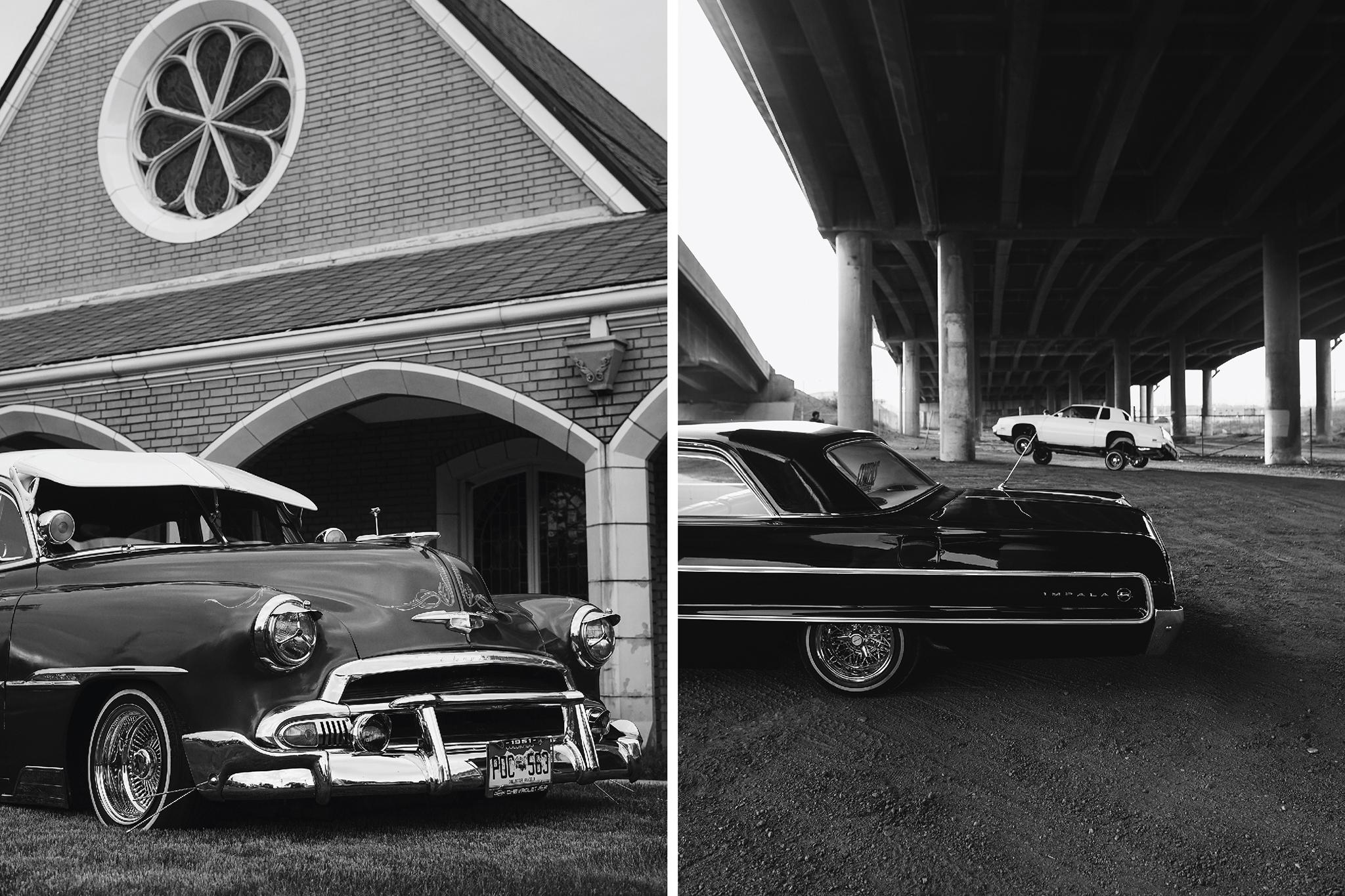
Courtesy: Armando Geneyro
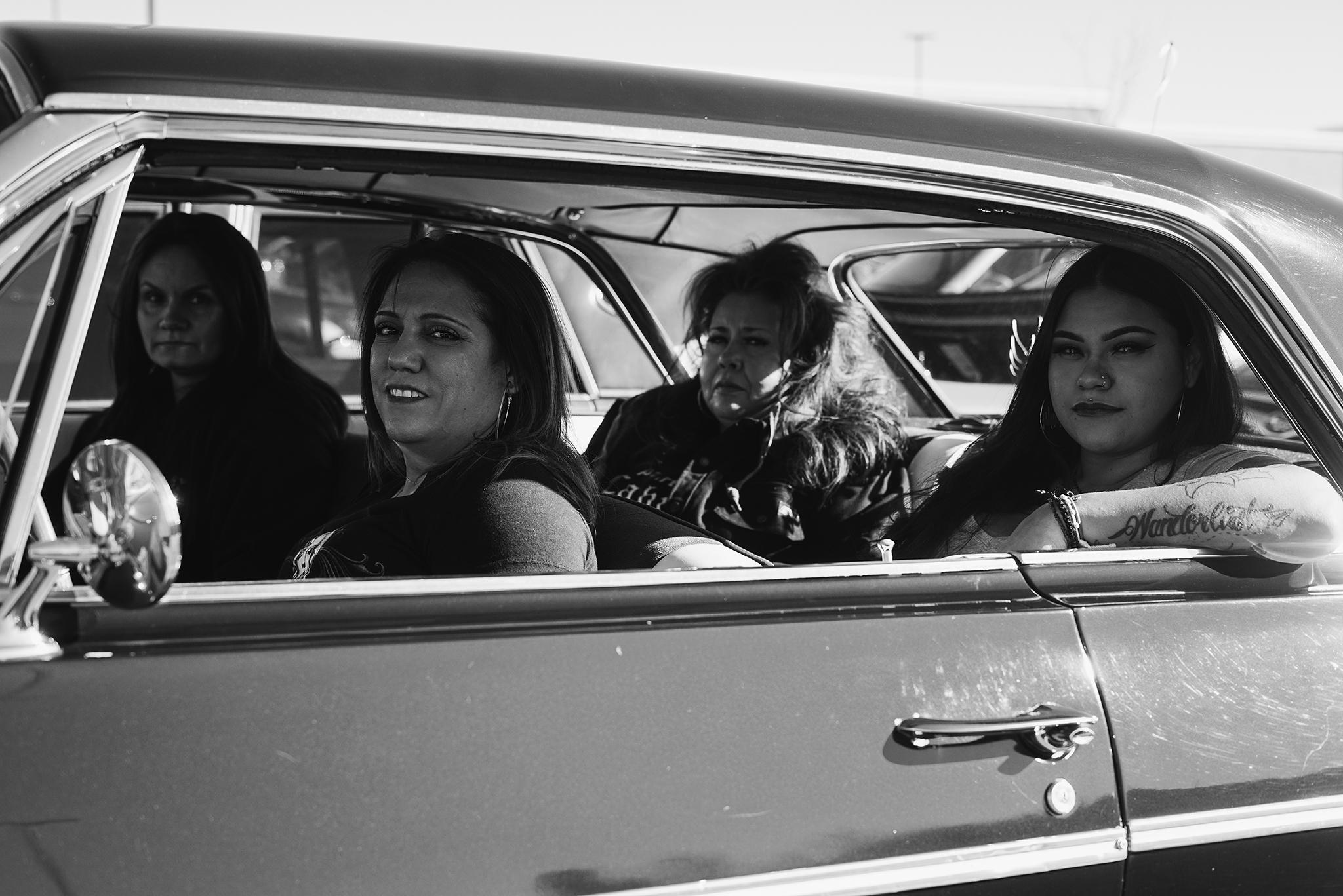
KB: Sounds like the fact that you've got sitting council members supporting and attending these events is a pretty big deal.
AG: Absolutely. ... It's definitely something that's being embraced and pushed by them. And it's helping with these misconceptions about the culture, about these traditions. So it's super-important, and we're grateful to them. They're sticking their necks out on the line, too. Not all politicians are perfect, and not all politicians are created equal. Even with Latina councilwomen, people still have their their beefs with them. Especially with everything going on on the social side of things here in this city and across the country. But when it comes to this lowriding stuff, we're grateful that they're representing what what these families and these clubs are all about.
You can follow Armando Geneyro's work on Instagram.
This interview was edited for clarity.
